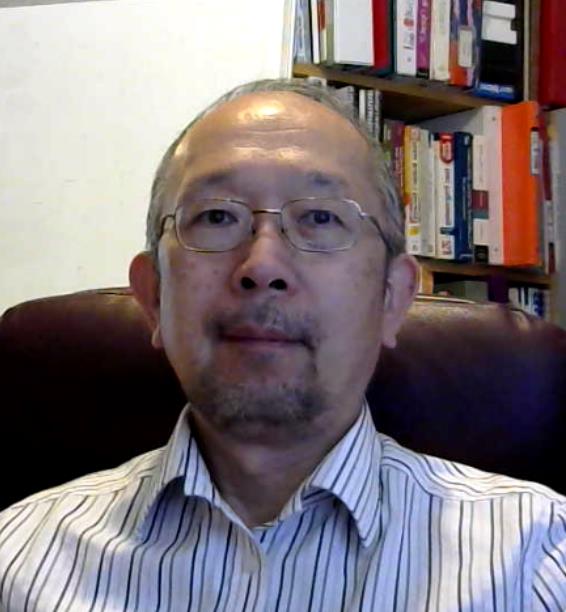Harry Li

Professor
(408) 924-4060
ENG 267A
Hua Harry Li, Ph.D. Professor of Computer Engineering, with research expertise in
Artificial Intelligence, Computer Vision and Embedded Systems who started his higher
education career as Assistant Professor in Computer Science Department, College of
Engineering at Texas Tech University in 1989, and then Associate Professor in 1994,
and joined the San Jose State University in January 1997. Dr. Li’s research expertise
includes pioneering the development of fuzzy logic intelligent controller design for
solving nonlinear control and computer vision problems with wide range of applications
from semiconductor equipment control to robotics. His technique improves and enhances
the PID (Proportional, Integral and Derivative) controller design and added the new
tool to the modern control design practice. At the introduction to the new technique,
a wide attention and discussion were generated including debate on the technology.
In this field, his authored edited book “Fuzzy Logic and Intelligent System” (with
Madan Gupta, ISBN 0-7923-9575-1, by Kluwer Academic Publishers) is one of the key
technical books for professionals in Artificial Intelligence and Intelligent Control.
His research work and the prototype system of Fuzzy Intelligent Controller Design
for solving “balancing a beam-and-ball system”, e.g., Astrom Nonlinear Control Problem,
was given an Industrial Neural Network Award at the World Congress Neural Network
Conference, in San Diego, California. Dr. Li, as a IEEE CPMT (Components, Packaging
and Manufacturing Technology) technical committee member has been actively involved
in the IEEE professional society, he was Guest Editor for the emerging technology
section of IEEE Transactions on CPMT (Components, Packaging, and Manufacturing Technology),
one of the top ranking Professional Technical Journals in the field. He was invited
contributor to the Encyclopedia of Electrical and Electronic Engineers (On Neural
Fuzzy Control techniques for semiconductor equipment control applications, pp. 154-
157, Vol. 8, Fr-Hi, ISBN 0-471-13946-7, John Wiley and Sons Inc. ), and invited
tutorial guest speaker at American Mathematician Annual Conference in Atlanta, Georgia.
His talk and tutorial includes those given to the high tech industry in the subsequent
years. Dr. Li has active and extensive High Tech industry experience in the Silicon
Valley including working as consulting principle engineer, senior system architect,
principle technologist. He has been active in technology innovation and entrepreneurship,
in addition, he has taught technology courses in the big and start-up Silicon Valley
companies.
In Computer Vision research, the core of Artificial Intelligence, he has designed and built a VLSI (Very Large Scale Integrated) electronics chip to realize silicon based vision functions. He has initiated and co-authored edited book “Vision Chips: Implementing Vision Algorithms with Analog VLSI Circuits” (with Christof Koch from Caltech, ISBN 0-8186-6492-4 by IEEE CS Press), one of the two primary reference research books as stated by IEEE Spectrum’s cover story on Artificial Eyes in 1997.
Dr. Li’s current research interests include Artificial Intelligence and Video Analytics for self driving vehicles and autonomous machines. He is a recipient of “Award of Excellence in recognition of outstanding achievement and professionalism in education, research, and service to students,” by Halliburton Education Foundation, at the College of Engineering, Texas Tech University, and he is listed in Who’s Who in Science and Engineering, A Marquis Who’s Who Publications, pp. 683, 4th Edition, ISBN 0-8379-5756-7, New Providence, NJ 07974,1999; and Who is Who in America, A Marquis Who’s Who Publications, 53rd Edition, Vol. 2, ISBN 0-8379-0194-4, New Providence, NJ 07974.
He lead the development of the Embedded Systems Program at the Computer Engineering Department since its inception in 2004. This effort lead to CMPE 242 (Embedded Hardware Systems), CMPE 244 (Embedded Software Systems), CMPE 245 (Embedded Wireless Systems), and CMPE 262 (Embedded Multimedia Architecture) courses, which were first taught as experimental courses three times before becoming the permanent courses over the years.
CMPE 297 [doc] (section IV) Video Analytics is offered since Fall 2016, the course brief description: Automated video analysis and 3D environment perception via vision techniques and machine learning, detection and recognition of temporal and spatial patterns, LoG and DoG convolution, pyramid analysis, Kalman filter tracking, convolutional neural networks. Hands-on labs. Contact Dr. Harry Li, for further details or you can find it here [doc].
In Computer Vision research, the core of Artificial Intelligence, he has designed and built a VLSI (Very Large Scale Integrated) electronics chip to realize silicon based vision functions. He has initiated and co-authored edited book “Vision Chips: Implementing Vision Algorithms with Analog VLSI Circuits” (with Christof Koch from Caltech, ISBN 0-8186-6492-4 by IEEE CS Press), one of the two primary reference research books as stated by IEEE Spectrum’s cover story on Artificial Eyes in 1997.
Dr. Li’s current research interests include Artificial Intelligence and Video Analytics for self driving vehicles and autonomous machines. He is a recipient of “Award of Excellence in recognition of outstanding achievement and professionalism in education, research, and service to students,” by Halliburton Education Foundation, at the College of Engineering, Texas Tech University, and he is listed in Who’s Who in Science and Engineering, A Marquis Who’s Who Publications, pp. 683, 4th Edition, ISBN 0-8379-5756-7, New Providence, NJ 07974,1999; and Who is Who in America, A Marquis Who’s Who Publications, 53rd Edition, Vol. 2, ISBN 0-8379-0194-4, New Providence, NJ 07974.
He lead the development of the Embedded Systems Program at the Computer Engineering Department since its inception in 2004. This effort lead to CMPE 242 (Embedded Hardware Systems), CMPE 244 (Embedded Software Systems), CMPE 245 (Embedded Wireless Systems), and CMPE 262 (Embedded Multimedia Architecture) courses, which were first taught as experimental courses three times before becoming the permanent courses over the years.
CMPE 297 [doc] (section IV) Video Analytics is offered since Fall 2016, the course brief description: Automated video analysis and 3D environment perception via vision techniques and machine learning, detection and recognition of temporal and spatial patterns, LoG and DoG convolution, pyramid analysis, Kalman filter tracking, convolutional neural networks. Hands-on labs. Contact Dr. Harry Li, for further details or you can find it here [doc].